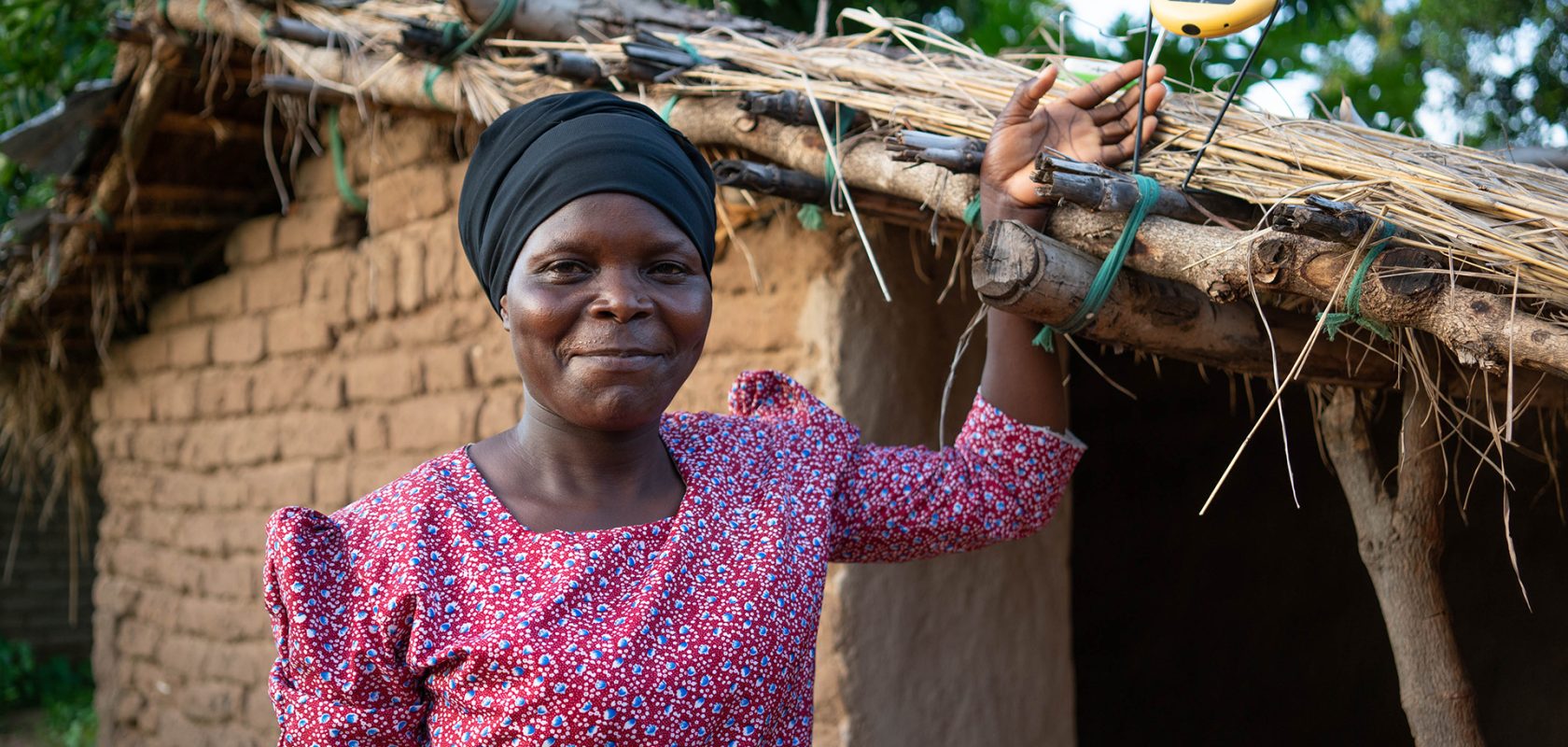When the day breaks in Nyama Village in Malawi and the first rays of the sun hits the house where 35 year old Eness Naliwa has lived for 22 years, she starts the day by washing up, sweeping the house and bathing her children. Then she cooks porridge for the five of them, “Sometimes I don’t eat. In the afternoon, I cook nsima.”
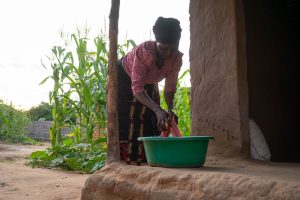
Eness Naliwa outside her house in Nyama Village, Malawi. Photo: SolarAid/Chris Gagnon.
Eness takes a bath herself before going to the market where she sells cornbread and tomatoes. She also grows crops such as peanuts and pigeon peas. The labour is hard work, “I don’t like farm work because it causes body pain.” On the side of farming, she does piecework, “For the piecework, I used to go up the mountains. There are charcoal burners who told us to cut trees, cut them into pieces and pile the wood.”
Eness dropped out of school as her parents didn’t have money to pay for her education, the financial problems escalated and she got married young. She now lives alone with her children, and even though she has been working hard to find different income sources, it has been a constant struggle. Eness explains, “I purchased charcoal but I always went bankrupt. ‘Maybe I should sell cornbread’, but sometimes only three people bought. When I came home, my children ate the cakes and it ended that way.”
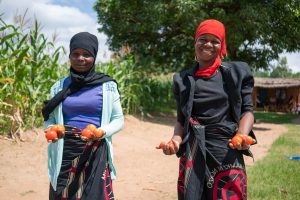
Eness Naliwa and Liness Friday sell tomatoes right next to each other in Nyama Village, Malawi. Photo: SolarAid/Chris Gagnon.
It was in June 2021 when SunnyMoney introduced the Mayi Walas programme that things started to change. Just before the opportunity appeared, Eness had gone bankrupt, “That is how I rose again. They said we should form village banks, so we did.” She is now an instrumental part of the Chimwemwe Mayi Walas group, and she has taken the position as the big joker of the group, always looking to make everyone around her laugh. “Since I joined Mayi Walas, things are changing. When we sold the solar lights we found some comfort. Mayi Walas helped me to start my business again.”
Being part of a group means the women share responsibility and income, providing a sense of security for everyone in the group, “I am happy with the group. My personal business capital is not enough but in the group of people, that’s not an issue. The group has more capital and once I have my share I use it at home to buy more business items. We do things together. It is very different from my personal business.”
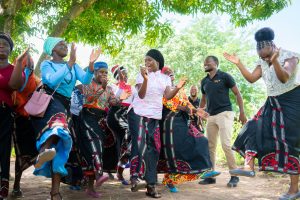
The groups of Mayi Walas often break out in dance when they come together. Photo: SolarAid/Chris Gagnon.
Now, Eness is enjoying life as a business woman, “I feel so good, I have been able to travel to places I haven’t seen before because of the business. We travel with the solar lights to various markets. Once we are at a market we sit there and present the business to the people.
They (SunnyMoney) taught us a lot about business. We don’t have to look up to men all the time. We followed the instructions. I am able to find basic needs on my own. I don’t even look like I am not married because of the business. Although I am not married, I am able to do everything on my own. Although we don’t have a lot of food, I make sure that my children don’t go to bed without eating.”
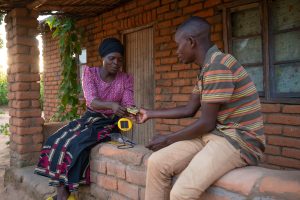
Eness Naliwa doing sales training with her field support agent Willis Katungwe. Photo: SolarAid/Chris Gagnon.
With access to solar light, things are also different at home for Eness and her children, who have experienced first-hand the dangers of naked flames in her house, “In the past, I’ve used straw fire to light the house. Later on, we started using paraffin lamps. We had a fire accident. I sent a child with straw fire into the house. The fire fell on my clothes and burned them. After that, I felt scared to use straw fire as light.”
There are many dangers living without light. Sometimes children get hurt in the dark if they slam into the wall. We were anxious to go into the bedroom because it was always very dark.”
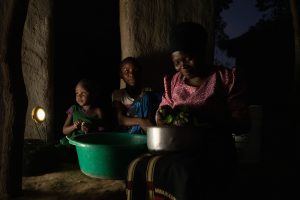
Eness Naliwa, with her children Salida Asan, 9 and Rukia, 3. Photo: SolarAid/Chris Gagnon.
Not having to worry about food on the table for her children has been a great relief for Eness, “My house has changed. When it is dark, and I haven’t arrived home yet, my children are able to use the solar lamp for cooking and studying. Food scarcity is no longer a big challenge, because we were using our money to have light. All my children have come to know eating in the morning.”
“I like the solar lights because they are very bright, and we are able to eat well at home because of the solar lights. My children are also able to study without problems.” Now that Eness is not spending as much money on paraffin or batteries for light, she is looking forward to the day when she will be able to buy notebooks for her children.
